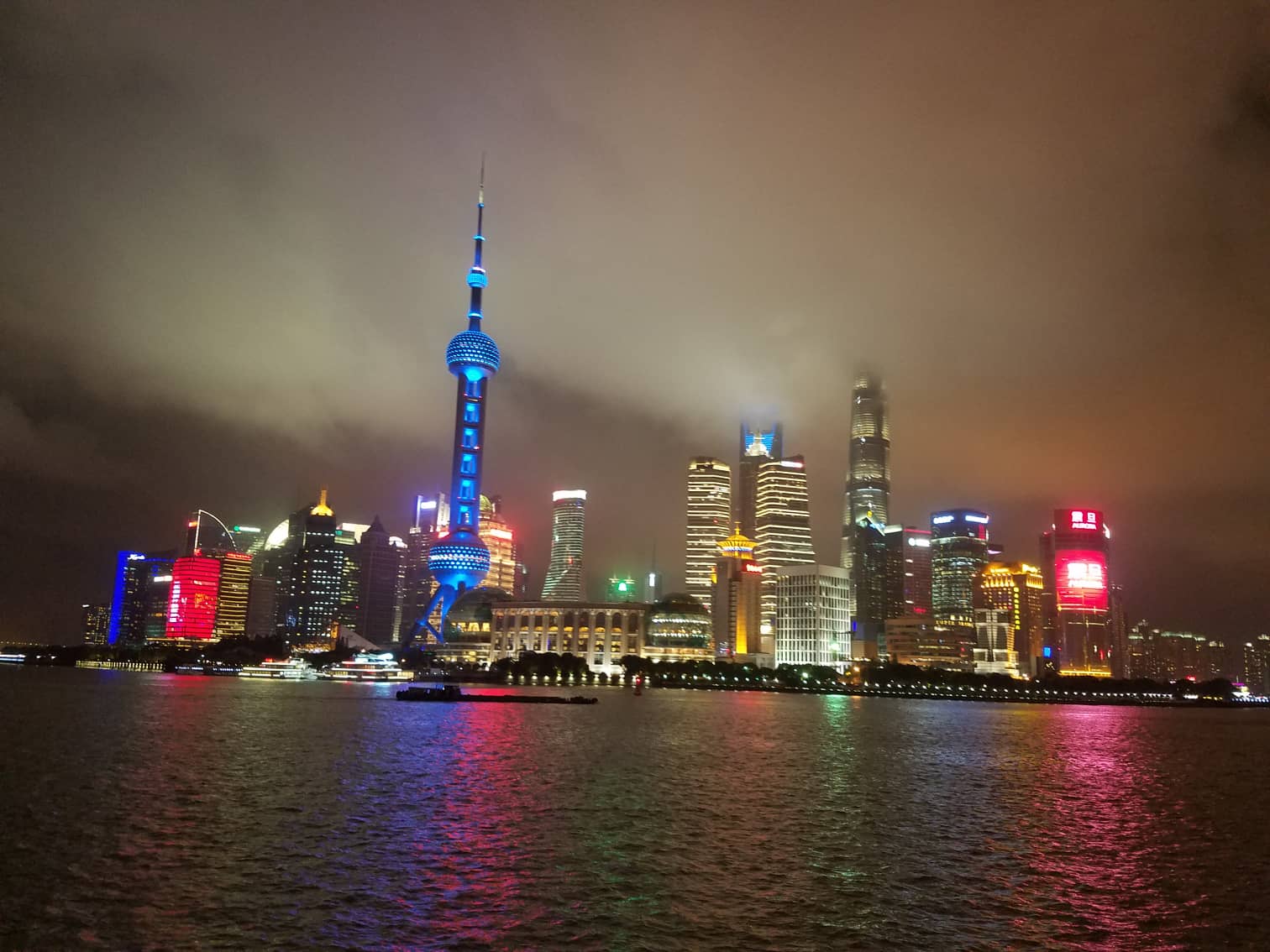My Summer in China


My interest in China began when I was a young teenager around the years 2011-2012, when I became interested in the economies of nations and how they rise and fall. This was motivated by the recent global recession. One day when I was looking at GDP graphs, I saw one showing a future projection in which China’s economy would become the largest in the world in two decades. That greatly interested me. I had to learn more. After years of paying close attention to Chinese economics and politics and attending a university computer science program with a sizeable portion of Chinese international students, one of whom is now a good friend of mine, I realized mastery of Chinese would be a useful skill for my future. The rise of China as a technological power means there will be more competitive Chinese computing companies and more Chinese colleagues in my career.
This summer I had the opportunity to go to Shanghai and study Chinese in an intense learning environment, with three hours of class a day in addition to living with a Chinese roommate. In the weeks before I left I was giddy with excitement, ready to see in person the tremendous scale and rapid development that I had previously only seen in YouTube documentaries, and ready to seriously study the language.

On the drive from the airport to the apartments, it was clear I was in a different world. The buildings, the city’s design, the language were all different. In the following two months I would visit all over Shanghai and go to Hangzhou and Beijing. In Shanghai, the Bund on the Huangpu river shows an excellent view of the downtown, the best view of Shanghai’s iconic skyline. In Hangzhou I saw the West Lake and Zhejiang Provincial Museum, amongst other things. In Beijing, I saw the Forbidden City, the Temple of Heaven, and visited the Great Wall.
But these are all just places. The most exciting experiences involved learning Chinese and attempting to speak to the locals. This was also how I learned the incredible difficulty of learning Chinese. Here I will give my advice to someone trying to learn Chinese studying abroad in China. I expect that, as an American student, my advice will be most useful to American, native-English speakers.
For a native English speaker, learning Chinese is not like learning a European language. Unlike Spanish, where half the words in each lesson sound almost identical to a similar English word, Chinese has almost no natural similarities with English. The syllables have specific tones, and are not simple to distinguish. You hear the teacher say a sentence, and he or she says it has a certain meaning, but it’s difficult to convince yourself at a fundamental level that it’s not just a disconnected series of “song,” “hua,” and “shi” syllables.
That’s where the endless repetition and failure comes in. You practice with your teacher, your classmates, and you stumble your way through ordering food at restaurants and buying supplies at stores and talking to strangers, and eventually you start to feel the subtle associations between sound and intrinsic meaning. Chinese takes much more time to gain an intuitive grasp of than a language similar to English, but that also makes any progress feel much more meaningful. Keep practicing, do not give up, study hard, and you will make progress.
In Beijing, I had a conversation with a fellow on a crowded bus after I accidentally bumped his head. I was able to understand nearly everything he said, and successfully communicate that I was studying in Shanghai, visiting Beijing for the weekend, and which places I had seen in Beijing. The thrill of successfully navigating that conversation was a tremendous feeling.
All in all, I would only recommend studying abroad in China, and Shanghai, to people who are seriously devoted to learning Chinese and experiencing the culture. The subtle differences in culture and the feeling of isolation in a land with vastly different norms and language could potentially be extremely stressful for someone who’s not sufficiently fascinated with China.
In China this Summer, I have learned enough Chinese to confidently move forward and continue learning at a rapid pace. This is exactly what I hoped to get from the experience. I thank IFSA for providing and accommodating this incredible opportunity. I look forward to my future experiences with Chinese people, language, and culture.
再见!
Michael M. | Computer Science major | University of Illinois at Urbana, Champaign | IFSA Study in Shanghai: International Business | Summer 2018